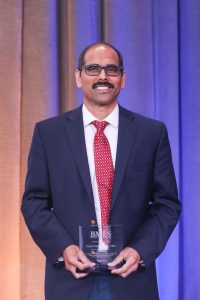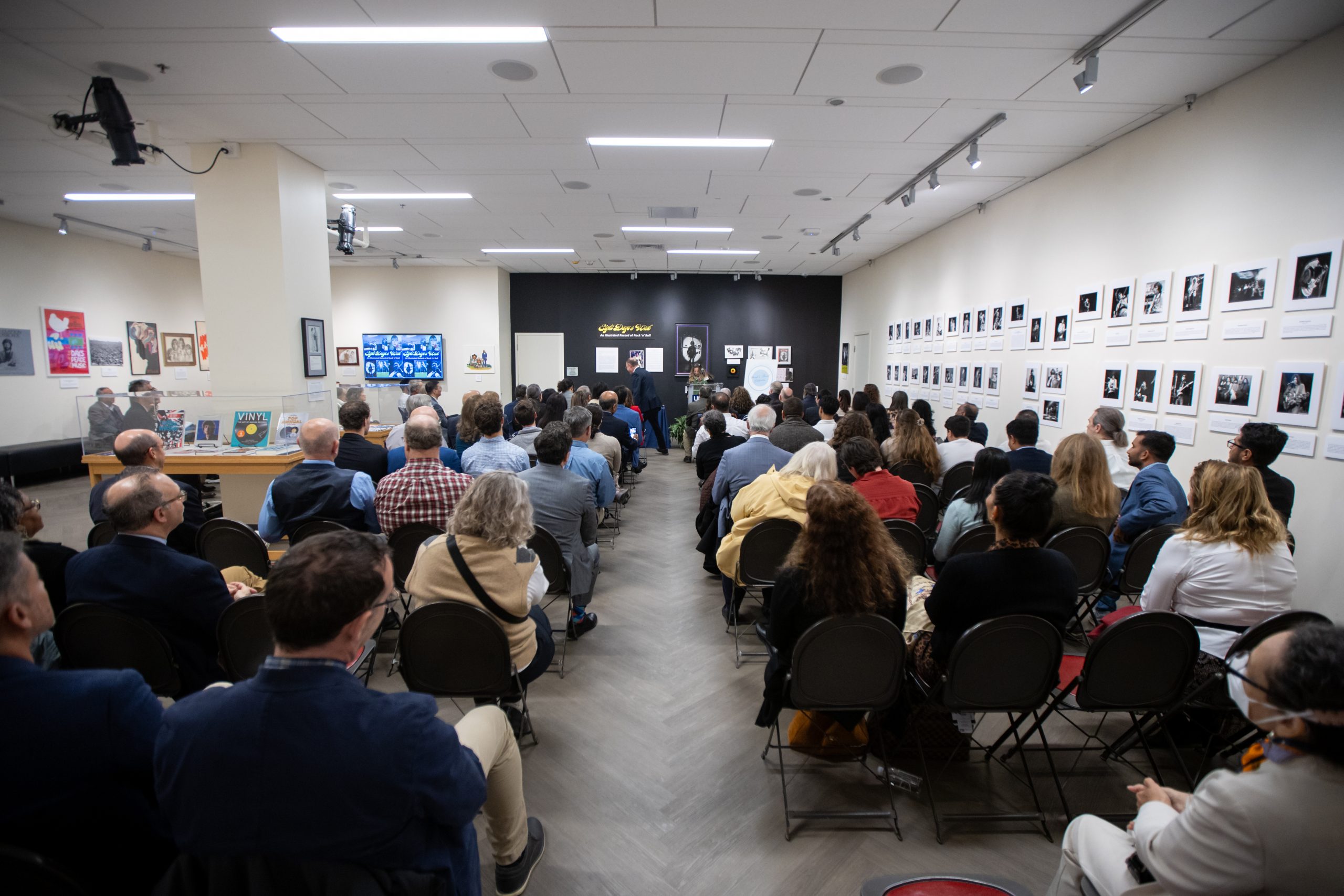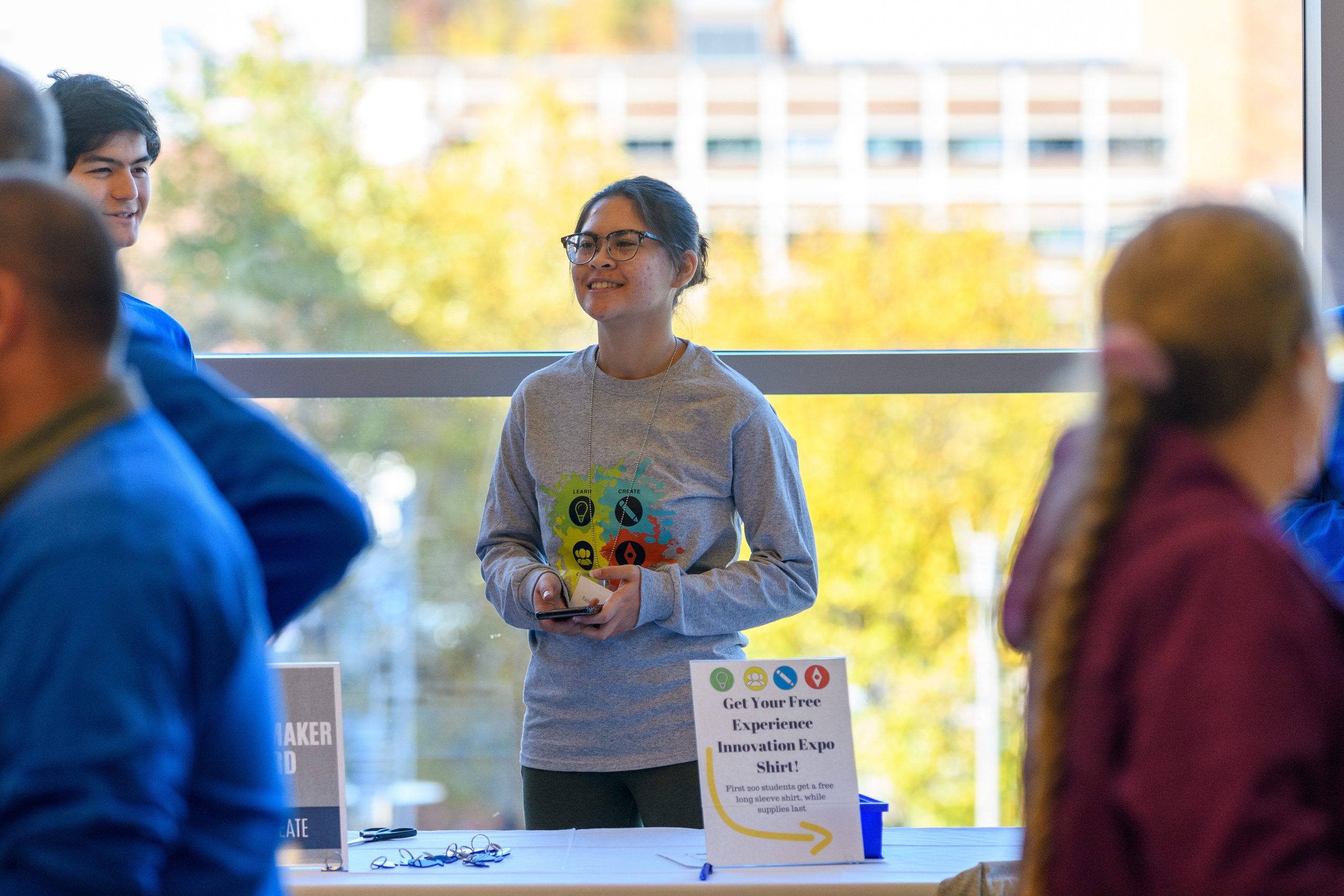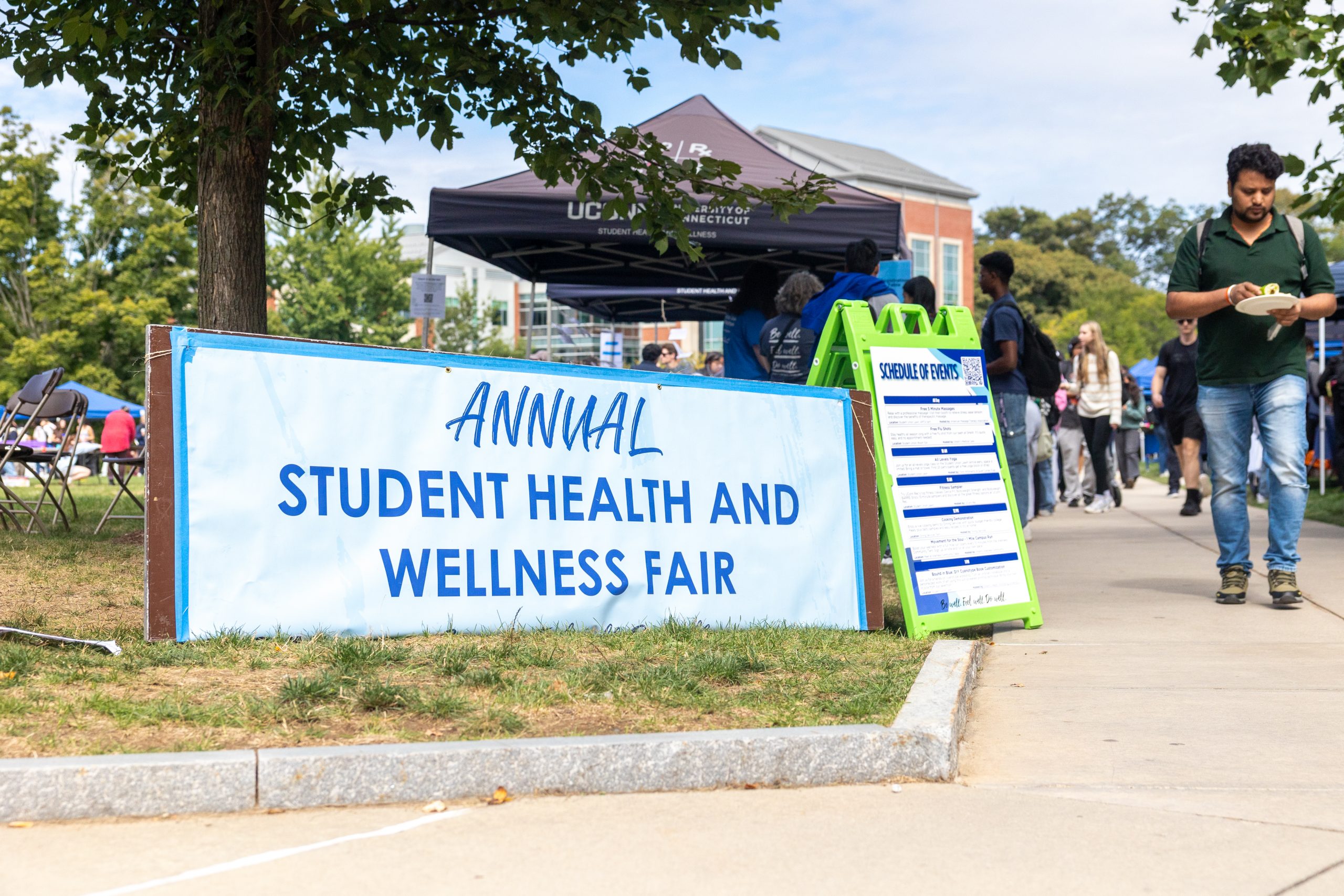UConn BME Professor and Head Named BMES Fellow
The University of Connecticut College of Engineering and UConn Health are proud to announce that Syam Nukavarapu, professor and head of biomedical engineering, has been inducted into the 2024 Class of Fellows of the Biomedical Engineering Society (BMES). He is a tenured professor of the Department of Biomedical Engineering at UConn with joint appointments in the departments of Materials Science and Engineering, and Orthopaedic Surgery at UConn Health.

As UConn BME head, Nukavarapu leads a cross-campus department involving faculty from the College of Engineering, School of Dental Medicine, and School of Medicine. This unique set-up offers interdisciplinary training opportunities for BME undergrad and graduate students in topics ranging from science and engineering to translational medicine and patient care.
The BMES Board of Directors honored Nukavarapu as a fellow during the BMES 2024 annual meeting in Baltimore, Maryland, in November. He was one of only 12 individuals selected nationwide for the 2024 BMES fellow class.
This prestigious recognition honors individuals whose contributions have significantly advanced the field of biomedical engineering through research, education, service, or leadership, and whose work has had a meaningful impact on health care and society.
Nukavarapu says, “I am humbled and honored for this recognition by BMES.”
His award citation mentions that he “made outstanding contributions to the development of biomaterial grafts and regenerative strategies for musculoskeletal tissues and interfaces, along with his significant contributions to the BMES mission.”
At UConn, Nukavarapu leads the Tissue Engineering Science & Technology Lab (TEST Lab) and remains a force in the biomedical engineering community. His group has made pioneering contributions to the field of biomaterials and tissue engineering through the development of biomaterial grafts and understanding biomaterial/graft interactions with cells and tissues. He’s particularly noted for the design and development of novel bone graft systems to promote large-area and vascularized bone tissue formation and bio-inspired zonal-structured grafts to approach bone-cartilage interface or complex tissue engineering.
“Our lab is designing new approaches for cartilage and osteochondral tissue engineering to develop promising therapies for joint repair,” says Nukavarapu. “We recently published research on bio-inspired grafts in the Springer Nature journal, Annals of Biomedical Engineering evaluating them in a rabbit model. In this article, we highlight osteochondral grafts with active cartilage zone for improved outcomes. This is very impactful in the field as it lays the foundation for novel tissue engineering strategies with tissue-derived biomaterials that present native tissue biochemical composition and function.”
Nukavarapu has had a distinguished career in biomedical engineering. To date, he is the author of about 90 peer reviewed journal articles, two books, and a special issue on the future of biomaterials. His studies have been widely cited by his peers and highlighted by National Science Foundation and ScienceDaily. For excellence in research, he received a Castleman Professorship in Engineering Innovation and Centennial Professorship from UConn, and he was an elected member of the Connecticut Academy of Science and Engineering.
“Syam exemplifies the excellence and innovation that define UConn Engineering,” says JC Zhao, dean of the UConn College of Engineering. “This well-deserved recognition as a BMES fellow is a testament to his remarkable contributions to science, health care, and society.”
Nukavarapu provides leadership at the institutional level and beyond. As BME department head, he has a strong vision of establishing a leading educational program that integrates research and training efforts to train the next generation workforce in BME. At the national level, he chaired and conducted many scientific sessions with various professional organizations in biomaterials as well as biomedical engineering. For example, he was an elected chair of the tissue engineering group at the Society for Biomaterials and currently serves as a member on BMES’s education committee and student affairs committee.
“Dr. Nukavarapu makes us all ‘UConn Proud,’” says Dr. Bruce T. Liang, dean of UConn School of Medicine. “As a true researcher, innovator, and also teacher of the next generation of biomedical engineers, he embodies what it means to be a UConn role model and professor.”
As an educator, Nukavarapu developed and successfully implemented a novel hands-on, inquiry-guided learning for problem-solving (HIP) pedagogy that promotes innovation and diversity in the classroom. As BME head, he proposed — and is currently implementing — a vision that makes UConn BME a leader in creating biomedical engineering knowledge and technology that will improve human health and well-being. In recognition of his education and service activities, Nukavarapu was honored with an AAUP Teaching Excellence award and the Distinguished Engineering Educator Award by UConn.
Nukavarapu has a long track record of developing and implementing mentoring programs to provide research experience and mentoring to high school/undergraduate students in BME-related projects, which have been funded by the National Science Foundation for about 10 years. His overall leadership and service activities are excellent and serve the BME community at local, national, and international levels.
Latest UConn Today
- UConn Honors Faculty, Staff, Students, and Community Partners at 2025 Provost’s Awards CelebrationThe celebration was held on Tuesday, October 14, at the Jorgensen Center for the Performing Arts Art Gallery
- Uncover ‘Clues to the Future’ at Experience Innovation Expo'If you're looking to have fun, this is the place for you'
- Message on a Bottle: Study Considers How Labels Can Convey Alcohol’s Cancer Risk'Public health practitioners often chase the single best message to use. But that single best message usually doesn’t exist'
- Gift Focuses on Helping Students Find Their Place at UConnThe gift will support a new program to help students build a sense of community and belonging early on at UConn
- Raising the Bar in Healthcare Leadership TrainingUrban Service Track/AHEC Scholars Program is based at UConn Health.
- After Receiving Internship Offers From The Big Four, Accounting Alumna Isabella Williams ’25 Is Thriving at PwCUConn’s Accounting program has a strong track record. Some 91 percent of UConn accounting majors had a full-time job or attended graduate school within three months of the 2025 graduation.













